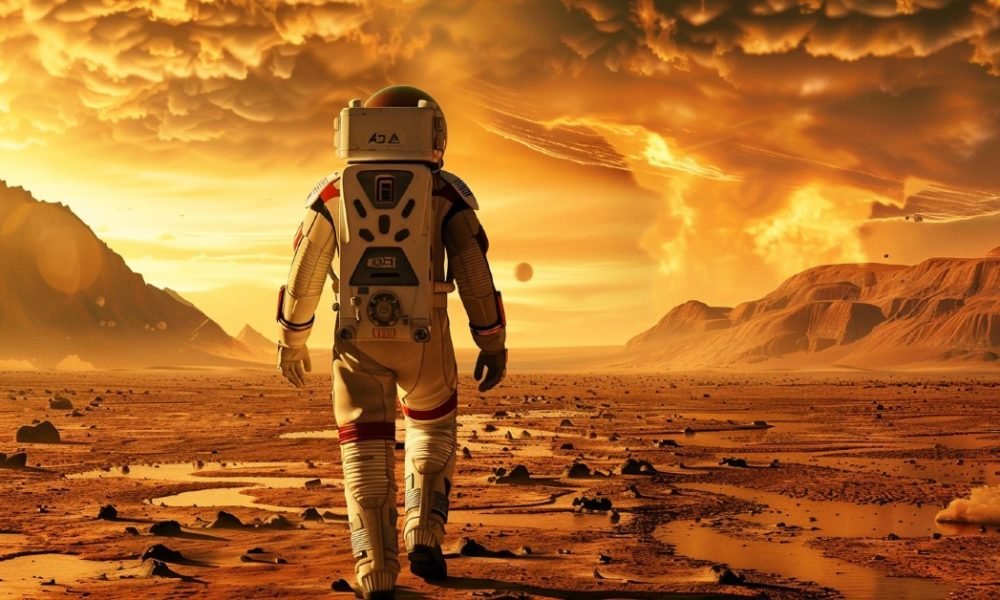The Challenges of Colonizing Mars: How AI Can Help
Mars colonization has become a topic of much discussion, with researchers exploring the possibility of human habitation on the Red Planet. Artificial intelligence is expected to play a crucial role in overcoming the numerous challenges associated with this ambitious goal. But what are the main obstacles to getting humans to Mars, and how can AI provide solutions?
Overcoming Transportation Barriers
The vast distance between Earth and Mars poses a significant challenge to space travel. With the shortest distance spanning over 34 million miles and travel only possible every two years, the journey could take 6-9 months. AI can help analyze academic papers to identify the most viable methods for efficient space travel, streamlining the process of selecting the best options for investment and research.
Ensuring Adequate Sustenance
One of the key concerns for Mars colonization is ensuring a stable food and water supply for inhabitants. AI-powered Mars rovers have been instrumental in identifying potential water sources and exploring the planet’s terrain. Additionally, research is underway to develop ‘farmbots’ that can grow food for space missions, with AI algorithms analyzing the nutritional value and suitability of the crops.
Addressing Health Risks
Space radiation and the physiological effects of Mars’ lower gravity pose serious health risks to future astronauts. By using algorithms and simulations, AI can help scientists anticipate and mitigate these health challenges, ensuring the well-being of space travelers during extended missions.
AI’s Impact on Mars Exploration
Artificial intelligence has already made significant contributions to Mars exploration, paving the way for groundbreaking discoveries and advancements in space technology.
Searching for Signs of Life
AI systems are being developed to detect signs of past life on Mars, providing valuable insights into the planet’s habitability. By analyzing molecular patterns, AI can determine the likelihood of living organisms surviving on Mars, informing crucial decisions about human safety and sustenance.
Identifying Habitable Zones
Through the use of artificial intelligence and machine learning, researchers are identifying areas on Mars most conducive to supporting life. By analyzing aerial images and data, AI can pinpoint regions with the highest potential for sustaining human habitation, guiding future missions and colonization efforts.
Enhancing Human Knowledge
Humanoid robots equipped with AI capabilities are being tested to gather data and perform tasks on Mars, expanding our understanding of the planet before human exploration. By leveraging AI technology, scientists aim to enhance our knowledge of Mars and ensure the success and safety of future manned missions.
Securing Oxygen Sources
Researchers are exploring AI-driven solutions to produce oxygen on Mars using electrochemical processes. By applying artificial intelligence to optimize the creation of oxygen from local resources, scientists are working towards establishing sustainable life support systems for future Mars missions.
The Role of AI in Advancing Mars Aspirations
While the journey to Mars presents significant challenges, the integration of artificial intelligence into space exploration efforts holds immense promise for overcoming these obstacles. As researchers continue to push the boundaries of scientific discovery, AI will undoubtedly play a vital role in shaping the future of Mars colonization and space exploration.
1. Can AI help humans get to Mars?
Yes, AI can play a crucial role in planning missions to Mars, analyzing data from spacecraft, and developing technologies that improve efficiency and safety during the journey.
2. How can AI assist in navigating the challenges of a Mars mission?
AI can help predict potential hazards, optimize energy usage, and provide real-time solutions to unexpected problems that arise during the journey to Mars.
3. Will AI be used to communicate with astronauts on Mars?
Yes, AI can be utilized to enhance communication between astronauts on Mars and mission control on Earth, improving efficiency and reducing the risk of errors in critical situations.
4. How will AI contribute to the success of establishing a human settlement on Mars?
AI can help automate routine tasks, assist in the maintenance of habitats and machinery, and provide valuable insights for decision-making in a challenging and remote environment like Mars.
5. Can AI help in the search for signs of life on Mars?
Yes, AI can analyze data collected by rovers and other spacecraft to identify potential signs of past or present life on Mars, guiding scientists in their search for evidence of extraterrestrial life.
Source link


No comment yet, add your voice below!